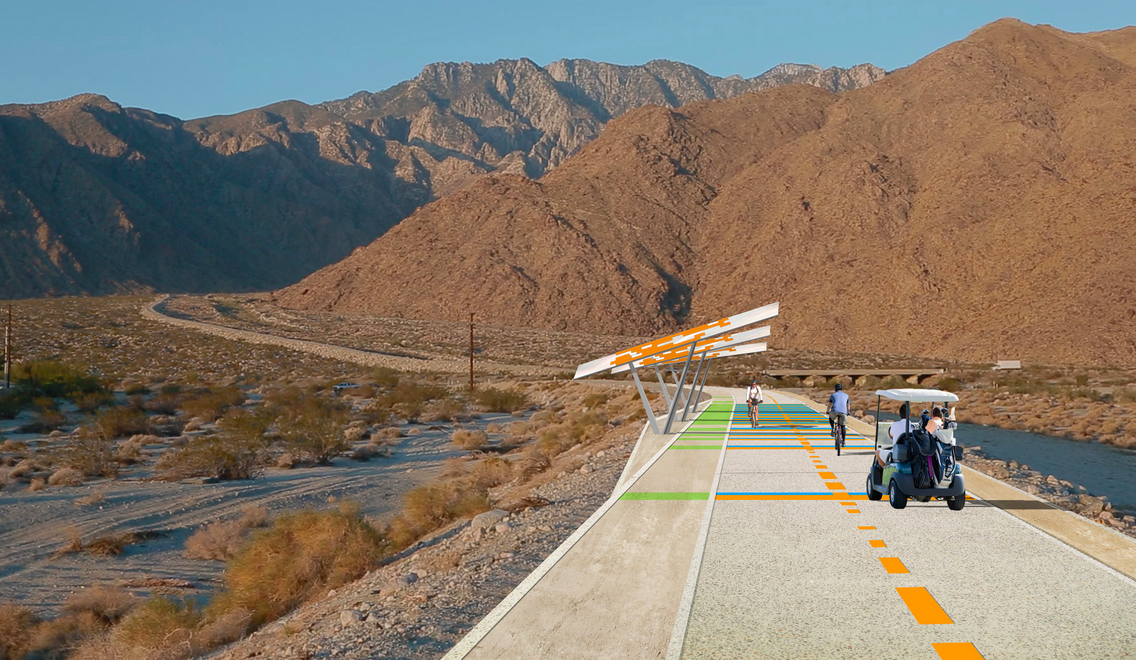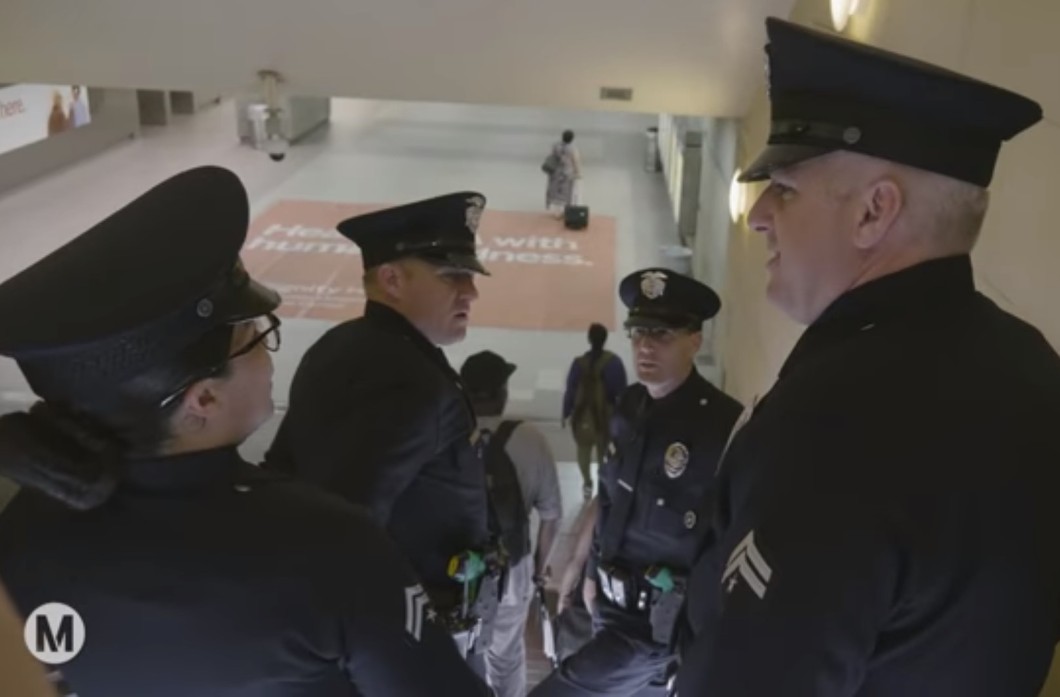Just before the California Transportation Commission (CTC) was set to approve staff recommendations on Active Transportation Program funding, the largest project on the list was moved down and is no longer recommended for funding. CTC staff recommended that CV Link receive $24.3 million, or almost a fifth of the total funding available, for a fifty-mile multi-use path connecting cities in the Coachella Valley. However, a mistake was discovered in its application, which led to its score being revisited. The new score put it further down the list, so that it will not be recommended for funding at tomorrow's CTC meeting in Riverside.
The immediate consequence is that funding is freed up for five other projects that hadn't previously made the cut-off. Those include: a project to build bike and pedestrian connections in Sunnyvale (which had been recommended for only partial funding, but will now receive its full request of $4.8 million); the Central Avenue Complete Street Project in Alameda (for $7.3 million); the McGowan Parkway, a bike lane and pedestrian improvements in Yuba County (for $1.2 million); pedestrian improvements along First Street in Santa Ana (for $4.5 million); a regional Safe Bicycling and Wayfinding project connecting the cities of Compton and Carson (for $1.6 million); and Long Beach's Citywide 8-80 Connections project (for $6.7 million).
CV Link is a planned multi-use path that would have allowed bicycles and pedestrians, as well as “low-speed (up to 25 mph) electric vehicles”—golf carts—to travel along its route. Eventually the path would connect Palm Springs to the Salton Sea, although not in the first phases of construction.
In their funding application, planners had to address the question of how the project would benefit disadvantaged communities, in keeping with equity requirements in state law. The project emerged with a high score in this section, showing that the areas it served had a low median household income.
Equity advocates reviewing the ATP applications noticed this—and that it didn't seem to ring true. The communities that the CV Link would go through include areas of very high median income, and closer inspection revealed that those areas weren't included in the calculations used for the application.
When the Leadership Counsel for Justice and Accountability brought this to the attention of planners at the Coachella Valley Association of Governments, they immediately expressed embarrassment at not catching the error. CTC staff then revisited the application in light of the new information, and lowered the project's score. The re-scoring didn't lower the score that much—it went from 89 points to 85.5 points—but it was enough to put it below the level at which it can receive funding in the statewide portion of the highly competitive program.
CV Link still scores high enough to be eligible for funding under the regional portion of the program, which will be decided in the early part of 2017. But SCAG divides its share of the regional funding by formula between its three counties—Riverside, Los Angeles, and Orange counties—so the most that can go to Riverside is about $6 million, far short of the $23-plus million project planners thought they were going to get.
Statewide equity and active transportation advocates are not unhappy with the outcome. Being able to complete five other projects, rather than having almost a fifth of the total Active Transportation Program funding tied up in one project, is a big plus. They have other issues with CV Link as well: for example, whether it was being built as an active transportation path or a golf cart path. ATP funding is limited to projects that encourage biking and walking, and golf carts don't exactly fit the description. The extent to which the project is aimed at allowing people to drive between golf links—and sold that way to get buy-in from well-heeled locals—needs to be considered when thinking about possible funding sources.
Mariela Magaña of the Leadership Counsel for Justice and Accountability, one of the advocacy groups that discovered the error, pointed out several good outcomes from the experience: one is that “we were able to do our job to ensure that funding was being used to benefit disadvantaged communities, and that the process is followed.” And now CVAG—and all applicants—“know that we are going to be ensuring that the processes are followed in the future.”
“It's important to be able to confirm that government officials are credible when they are applying for and implementing funding,” she added.
The Active Transportation Program is—as Streetsblog has written ad nauseum—oversubscribed and underfunded, and being able to produce more projects in more communities with the available funding is a huge benefit. Bryan Moller of the LA County Bicycle Coalition is glad to see the projects in Long Beach and Compton, for example, be recommended for funding. “Long Beach has great facilities in downtown,” he said, “but when you get to north Long Beach you don't see the same kinds of protected bike lanes.”
“CV Link is a huge project, and requires a log of funding,” said Moller. “The question is, does it help the people who need it most? It's great to see projects in cities that actually need these improvements, like Compton. There, a lot of people don't own cars, and rely on public transit to get where they need to go. In LA County, people are demanding livable communities, and having these kinds of projects in disenfranchised communities is important way to make a difference.”
The California Transportation Commission holds its monthly meeting tomorrow in Riverside, where it will consider the rejiggered staff recommendations for Active Transportation Program funding.






